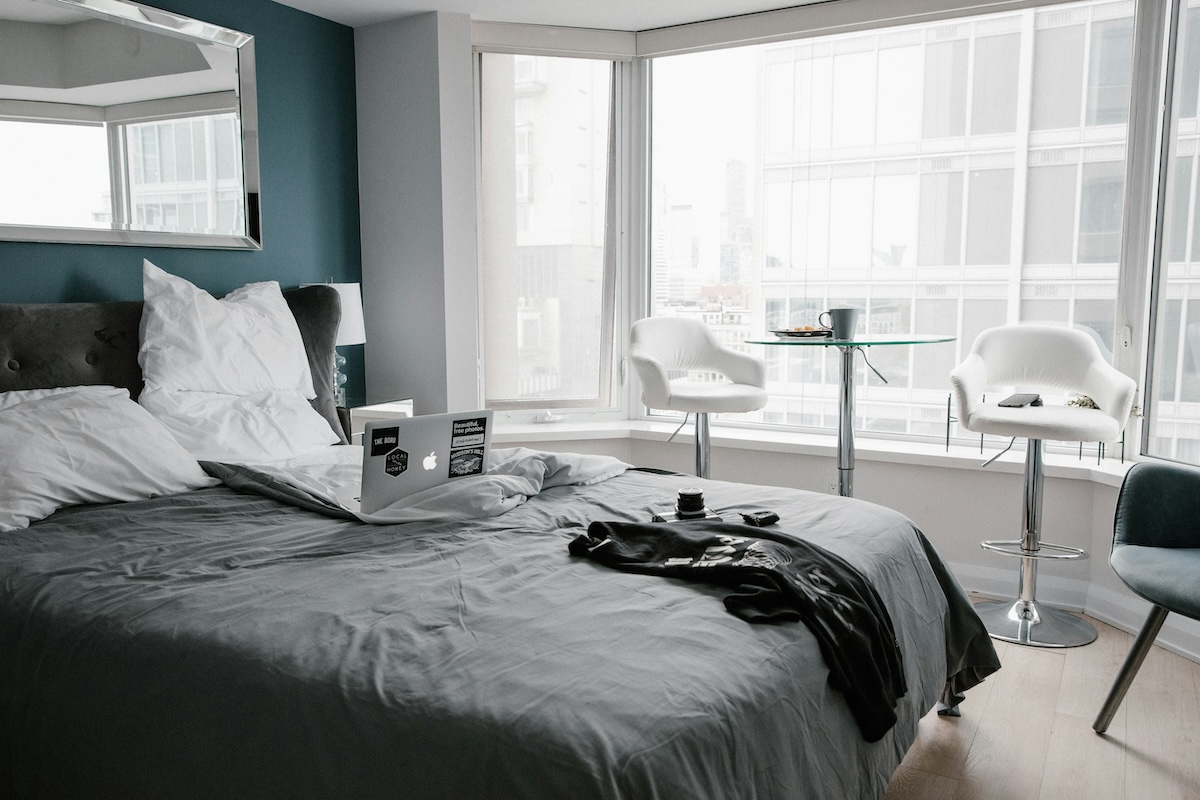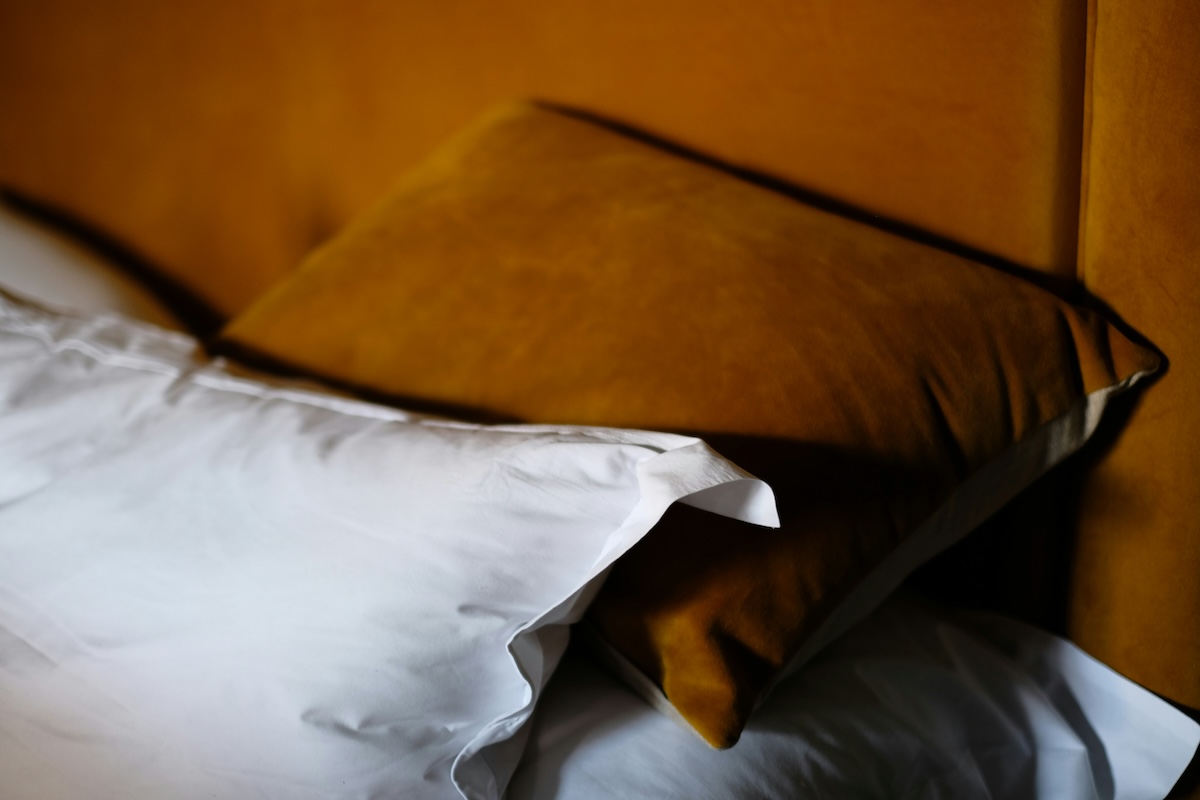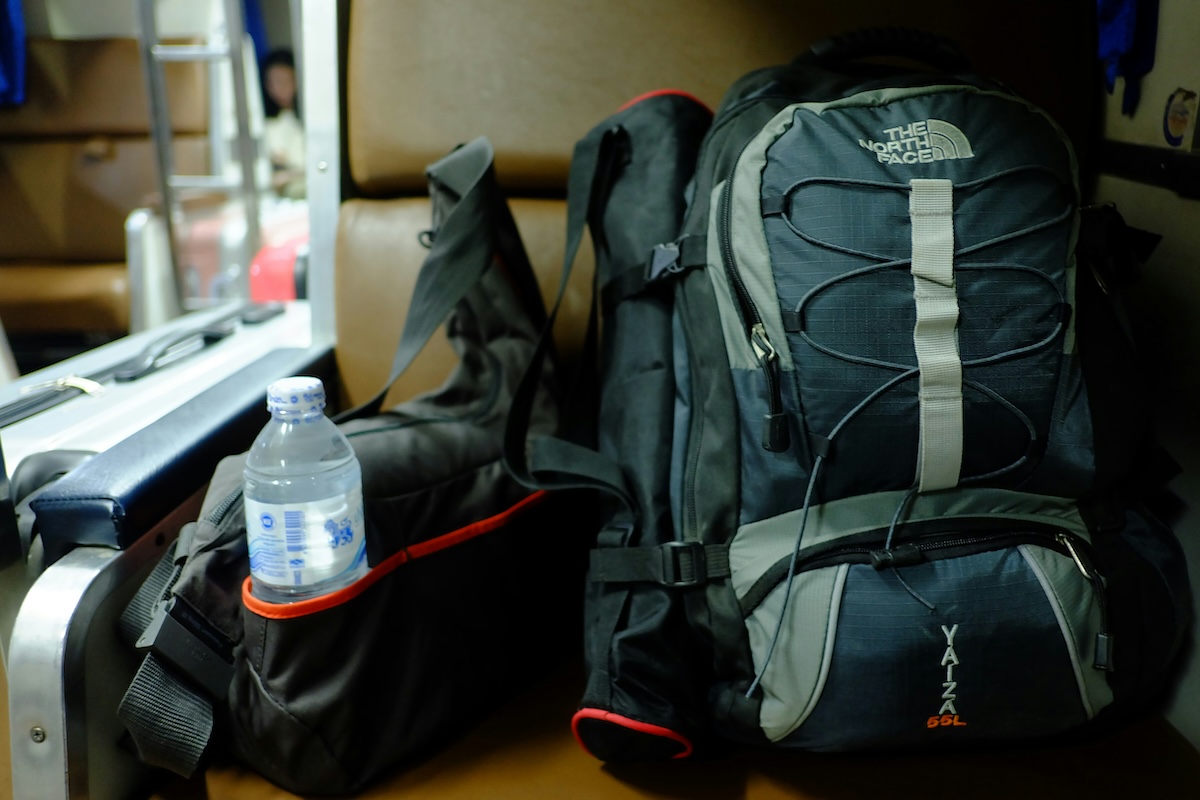
How to Check for Bed Bugs in a Hotel, and What to Do if You Find Them
By: Sarah Stone
Skip to Section
Article Summary
Bed bugs are the stuff of travel nightmares, and if you’ve ever spotted one crawling near your pillow, you already know the horror. This guide helps you prevent, detect, and deal with them without spiraling into full meltdown mode.
You’ll get clear, step-by-step advice for inspecting your room, what to do if you find bugs, how to avoid bringing them home, and how to handle the situation after your trip. Whether you’re a first-time traveler or a seasoned nomad, these tips can save your sanity—and your luggage.
- Check reviews before booking and inspect your room thoroughly as soon as you arrive.
- Keep bags off the bed and away from walls—use the bathroom floor or luggage rack instead.
- If you find bed bugs, document everything, alert management, and contain your belongings immediately.
- Wash and dry all clothing on high heat, and vacuum bags, backpacks, and gear to kill any hitchhikers.
- Unpack in a garage or contained area at home and monitor your space for a few weeks just to be safe.
I’ve written about some of my scary travel experiences, including my favorite—that time I was prescribed Lariam (an antimalarial) and it made me go off my rocker. But the one I actually bring up when someone asks about my most terrifying travel story?
Waking up to see a bed bug next to my pillow in a San Francisco hotel.
It seems like nothing compared to being petrified in a jungle, or my plane having a sudden loss of altitude (to be met with a line of emergency vehicles on the runway), but my gosh! When I mention the bed bug to someone new, they all respond with the same visceral “Oh no, ew, that’s my worst nightmare!”
And it’s mine too! Because not only did I want to avoid getting bitten and bringing home these disgusting little pests in my luggage, but immediately after that trip, I was going to stay at my brother’s place for a few weeks until jetting off to Europe for a few months—and I for sure didn’t want to repay his kindness with bed bugs.
I didn’t sleep the rest of that night—instead, I scoured my backpack and every single thing in it, took a couple of showers, and switched hotels the next morning. I repeated the scouring of myself and my things the next several days until I flew back to Virginia and immediately threw everything, including my backpack, into the washing machine and ran it on the hottest cycle more times than I should admit. And did the same with drying.
As far as I know, he never got bed bugs.
Now! If you’ve also got a healthy fear of encountering bed bugs while traveling, I’m here to help. Let’s look at how to check for them, what to do if you find any, and what to do if one hops into your bag for a trip home.
How to Check for Bed Bugs in a Hotel, Airbnb, or Other Accommodation

Photo by Dan Farrell on Unsplash
Before even booking a hotel or other accommodation, make sure to read reviews and drill down to see if any of those reviews mention bed bugs—if someone has alerted travelers to them, consider when it was written and whether (and how) the owner responded. If you’re feeling off about the review and response, keep looking until you find a place you’re comfortable with.
Now let’s talk about what to do when you arrive.
First up, put your bags on a luggage rack away from walls and beds—preferably in the bathroom or on a tiled surface, as bed bugs aren’t as likely to be found there. Keeping your luggage elevated and away from potential bed bug-infested areas can reduce the risk of bringing them back with you.
Now, check your bedding (as annoying as that sounds). Remove all sheets and pillows and examine the mattress for signs of bed bugs. Signs can include brown spots (poo), shed skins, and the bugs themselves. Pay close attention to the bed frame, headboard, and box spring. Look in any crevasses and folds, and of course, inspect the sheets and pillows too. Be sure to use your phone’s flashlight!
Even if you don’t see signs of bed bugs on your actual bed, your work unfortunately isn’t over. These little monsters can reside in places beyond the immediate area around your bed, so make sure to look at all corners, behind picture frames, around electrical outlets, and within any cracks around the room. Check furniture—sofas, chairs, nightstands, etc.—especially along seams, under cushions, and in folds. Don’t forget the curtains either, particularly along hems and folds. This also goes for extra items you might need your hotel to provide, like a cot or additional bedding.
And finally, remember to inspect all of your own items before leaving. That’s not just your luggage and clothes, but everything, including books, electronics, and so on.
How to Deal with Bed Bugs if You Find Them While Traveling

Photo by Tina Bosse on Unsplash
Now what do you do if you happen to find a bed bug, or even signs of them? Of course you’ll want to run screaming from your room, but before doing that, here’s a rundown of your options:
Document Everything
Immediately contain the area to prevent the bugs from spreading—yes, they’re probably in other spots too, but at least make a note of the area where you found them, including taking photos. You may want to look for signs of bed bugs in other areas as well, and document any you find. Keep any personal items away from those areas.
Notify Management
Notify the hotel management or your accommodation host of the situation. Request a detailed report of the incident and the actions taken in response—this is important if you want a refund, and if you decide to post a review of the place.
Check Out (If You Can)
You’re probably going to want to move to a different room, or totally different hotel or other type of accommodation by now—if it’s possible and you’re going with that option, check all of your clothing, bags, and other belongings to make sure you didn’t pick up an unwanted passenger.
If you can pick up some plastic bags to seal your items in, that’s even better—it’ll allow you to better contain your items if you want to check them again when you’ve moved into your new spot.
If you can’t move out right now, again push the management or host for some kind of resolution. You might feel better relocating to another room, or toughing it out for the night until you can find another place as soon as possible. Your goal is to make sure you don’t bring those bugs home with you.
Preventing Bed Bugs from Coming Home with You
If you’ve found bed bugs in your hotel, there are a few steps you can take to ensure they don’t come home with you. It’s annoying, but so much better than dealing with those nasty guys if they make their way into your home:
Buy these things: Get a small vacuum to go over all of your luggage and belongings to remove any potential bed bugs. Pick up a protective cover specifically designed for suitcases to deter bed bugs from latching on during your journey. And finally, get plastic bags for your clothing—remember to separate potentially infested clothing from the rest—so that you can contain whatever you can until you can wash everything.
Wash everything: If you can get to a laundromat before heading home, that can help. Whenever you’re able to wash your clothes and anything else that can be tossed into a machine (like a backpack), make sure to wash everything in hot water and dry them on a high heat setting, as this can kill any bed bugs and their eggs.
Transport: Transport your belongings in sealed plastic bags or containers to isolate them from new environments, like other hotels you may check into. Upon returning home, avoid bringing luggage directly into living spaces until they’ve been thoroughly inspected and cleaned.
Post-Travel Measures to Ensure You’re Bed Bug-Free
Ok, now that you’re home, you can kind of relax. Or you can freak out a little bit like I did, and sprint to the washing machine before saying hello to your loved ones.
The smart thing to do is to unpack your belongings in a contained area like a garage, away from any spot where a bug could sneak away and head to a hiding place within your house. Wash all of your clothes and other fabric items in hot water and dry them on a high heat setting. Vacuum your luggage and dispose of any vacuum bags in a sealed container outside of your home.
Beyond this, you might not have to worry, but if you still can’t relax (I checked my room daily for the few weeks I was at my brother’s place), take some time to inspect your sleeping areas, furniture, and other potential bed bug hideouts. Remember to not only look for the bugs themselves, but also those small brown spots and shed skins. As a long-term plan, figure out a routine to check for bed bugs around your home, and consider using mattress cases designed to keep bed bugs out of beds and box springs.
I know—it’s a lot. It’s sickening to find bed bugs in your hotel, and if you’ve heard the horror stories about how impossible it is to fully get rid of them, even seeing one single bed bug can put you into a paranoid frenzy. But taking a few thorough steps to ensure you’re not picking up those unwanted passengers on your trip can definitely help you keep them out of your own home for the long-term!
Now I’m going to take a shower, because writing this article made me itchy.
About the Author
 As the editor-in-chief of Frayed Passport, my goal is to help you build a lifestyle that lets you travel the world whenever you want and however long you want, and not worry about where your next paycheck will come from. I've been to 20+ countries and five continents, lived for years as a full-time digital nomad, and have worked completely remotely since 2015. If you would like to share your story with our community, or partner with Frayed Passport, get in touch with me using the form on our About page.
As the editor-in-chief of Frayed Passport, my goal is to help you build a lifestyle that lets you travel the world whenever you want and however long you want, and not worry about where your next paycheck will come from. I've been to 20+ countries and five continents, lived for years as a full-time digital nomad, and have worked completely remotely since 2015. If you would like to share your story with our community, or partner with Frayed Passport, get in touch with me using the form on our About page.Featured image by Andrew Neel on Unsplash
Information published on this website and across our networks can change over time. Stories and recommendations reflect the subjective opinions of our writers. You should consult multiple sources to ensure you have the most current, safe, and correct details for your own research and plans.
Frayed Passport is a participant in the Amazon Associates Program, an affiliate advertising program designed to provide a means for sites to earn advertising fees by advertising and linking to Amazon.com. We also may share links to other affiliates and sponsors in articles across our website.





